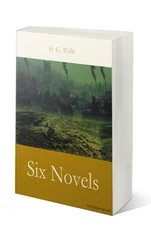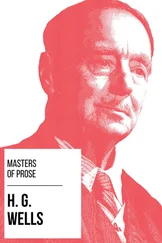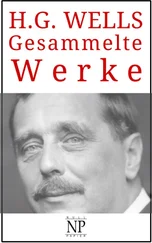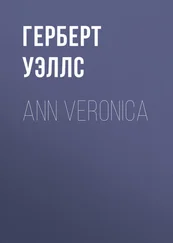has to be taken care of. One has to be so careful. . . . It's a
beautiful plant, but a tender one. . . . I didn't know. I've a
dread of love dropping its petals, becoming mean and ugly. How
can I tell you all I feel? I love you beyond measure. And I'm
afraid. . . . I'm anxious, joyfully anxious, like a man when he
has found a treasure."
"YOU know," said Ann Veronica. "I just came to you and put
myself in your hands."
"That's why, in a way, I'm prudish. I've--dreads. I don't want
to tear at you with hot, rough hands."
"As you will, dear lover. But for me it doesn't matter. Nothing
is wrong that you do. Nothing. I am quite clear about this. I
know exactly what I am doing. I give myself to you."
"God send you may never repent it!" cried Capes.
She put her hand in his to be squeezed.
"You see," he said, "it is doubtful if we can ever marry. Very
doubtful. I have been thinking-- I will go to my wife again. I
will do my utmost. But for a long time, anyhow, we lovers have
to be as if we were no more than friends."
He paused. She answered slowly. "That is as you will," she
said.
"Why should it matter?" he said.
And then, as she answered nothing, "Seeing that we are lovers."
Part 7
It was rather less than a week after that walk that Capes came
and sat down beside Ann Veronica for their customary talk in the
lunch hour. He took a handful of almonds and raisins that she
held out to him--for both these young people had given up the
practice of going out for luncheon--and kept her hand for a
moment to kiss her finger-tips. He did not speak for a moment.
"Well?" she said.
"I say!" he said, without any movement. "Let's go."
"Go!" She did not understand him at first, and then her heart
began to beat very rapidly.
"Stop this--this humbugging," he explained. "It's like the
Picture and the Bust. I can't stand it. Let's go. Go off and
live together--until we can marry. Dare you?"
"Do you mean NOW?"
"At the end of the session. It's the only clean way for us. Are
you prepared to do it?"
Her hands clenched. "Yes," she said, very faintly. And then:
"Of course! Always. It is what I have wanted, what I have meant
all along."
She stared before her, trying to keep back a rush of tears.
Capes kept obstinately stiff, and spoke between his teeth.
"There's endless reasons, no doubt, why we shouldn't," he said.
"Endless. It's wrong in the eyes of most people. For many of
them it will smirch us forever. . . . You DO understand?"
"Who cares for most people?" she said, not looking at him.
"I do. It means social isolation--struggle."
"If you dare--I dare," said Ann Veronica. "I was never so clear
in all my life as I have been in this business." She lifted
steadfast eyes to him. "Dare!" she said. The tears were welling
over now, but her voice was steady. "You're not a man for
me--not one of a sex, I mean. You're just a particular being
with nothing else in the world to class with you. You are just
necessary to life for me. I've never met any one like you. To
have you is all important. Nothing else weighs against it.
Morals only begin when that is settled. I sha'n't care a rap if
we can never marry. I'm not a bit afraid of anything--scandal,
difficulty, struggle. . . . I rather want them. I do want
them."
"You'll get them," he said. "This means a plunge."
"Are you afraid?"
"Only for you! Most of my income will vanish. Even unbelieving
biological demonstrators must respect decorum; and besides, you
see--you were a student. We shall have--hardly any money."
"I don't care."
"Hardship and danger."
"With you!"
"And as for your people?"
"They don't count. That is the dreadful truth. This--all this
swamps them. They don't count, and I don't care."
Capes suddenly abandoned his attitude of meditative restraint.
"By Jove!" he broke out, "one tries to take a serious, sober
view. I don't quite know why. But this is a great lark, Ann
Veronica! This turns life into a glorious adventure!"
"Ah!" she cried in triumph.
"I shall have to give up biology, anyhow. I've always had a
sneaking desire for the writing-trade. That is what I must do.
I can."
"Of course you can."
"And biology was beginning to bore me a bit. One research is
very like another. . . . Latterly I've been doing things. . . .
Creative work appeals to me wonderfully. Things seem to come
rather easily. . . . But that, and that sort of thing, is just a
day-dream. For a time I must do journalism and work hard. . . .
What isn't a day-dream is this: that you and I are going to put
an end to flummery--and go!"
"Go!" said Ann Veronica, clenching her hands.
"For better or worse."
"For richer or poorer."
She could not go on, for she was laughing and crying at the same
time. "We were bound to do this when you kissed me," she sobbed
through her tears. "We have been all this time-- Only your queer
code of honor-- Honor! Once you begin with love you have to see
it through."
CHAPTER THE FIFTEENTH
THE LAST DAYS AT HOME
Part 1
They decided to go to Switzerland at the session's end. "We'll
clean up everything tidy," said Capes. . . .
For her pride's sake, and to save herself from long day-dreams
and an unappeasable longing for her lover, Ann Veronica worked
hard at her biology during those closing weeks. She was, as
Capes had said, a hard young woman. She was keenly resolved to
do well in the school examination, and not to be drowned in the
seas of emotion that threatened to submerge her intellectual
being.
Nevertheless, she could not prevent a rising excitement as the
dawn of the new life drew near to her--a thrilling of the nerves,
a secret and delicious exaltation above the common circumstances
of existence. Sometimes her straying mind would become
astonishingly active--embroidering bright and decorative things
that she could say to Capes; sometimes it passed into a state of
passive acquiescence, into a radiant, formless, golden joy. She
was aware of people--her aunt, her father, her fellow-students,
friends, and neighbors--moving about outside this glowing secret,
very much as an actor is aware of the dim audience beyond the
barrier of the footlights. They might applaud, or object, or
interfere, but the drama was her very own. She was going through
with that, anyhow.
The feeling of last days grew stronger with her as their number
diminished. She went about the familiar home with a clearer and
clearer sense of inevitable conclusions. She became exceptionally
considerate and affectionate with her father and aunt, and more
and more concerned about the coming catastrophe that she was
about to precipitate upon them. Her aunt had a once exasperating
habit of interrupting her work with demands for small household
services, but now Ann Veronica rendered them with a queer
readiness of anticipatory propitiation. She was greatly exercised
by the problem of confiding in the Widgetts; they were dears, and
she talked away two evenings with Constance without broaching the
topic; she made some vague intimations in letters to Miss Miniver
that Miss Miniver failed to mark. But she did not bother her
head very much about her relations with these sympathizers.
And at length her penultimate day in Morningside Park dawned for
her. She got up early, and walked about the garden in the dewy
Читать дальше












